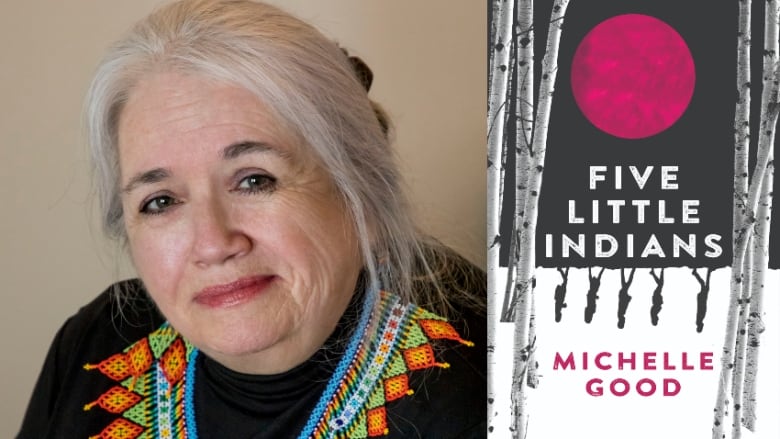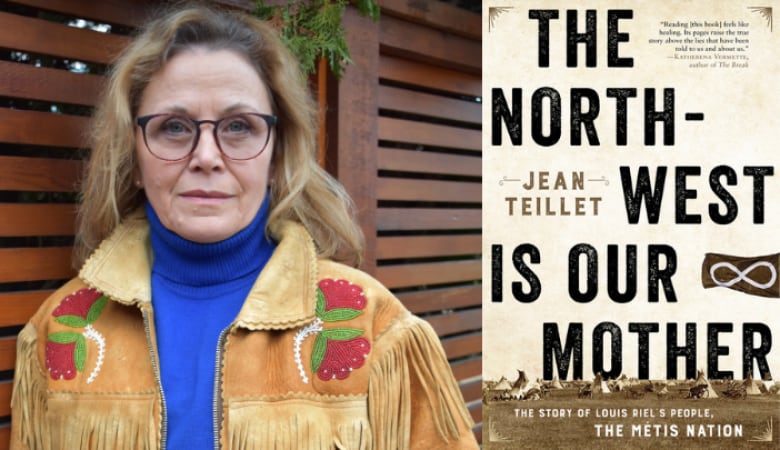18 books to read on Orange Shirt Day
Orange Shirt Day, which takes place Sept. 30, is an annual event that honours the survivors of residential schools and their families. It is inspired by Phyllis Webstad who, at the age of six, was stripped of her new orange shirt on her first day at St. Joseph Mission residential school.
"The colour orange has always reminded me of that and how my feelings didn't matter, how no one cared and how I felt like I was worth nothing," Webstad told CBC News in 2016.
Below is a list of books by Indigenous writers about Indigenous history, the residential school system and its traumatic impact on survivors, their families and the generations that follow.
A History of My Brief Body by Billy-Ray Belcourt

Billy-Ray Belcourt was the youngest-ever winner of the Griffin Poetry Prize. He was also the first First Nations Rhodes scholar from Canada. But he was once a young boy, growing up in Driftpile Cree Nation in Alberta. A History of My Brief Body tells his story: how his family was impacted by colonialism and intergenerational trauma and yet still hold joy and love in their hearts and lives, how he came into his queer identity and how writing became both a place of comfort and solace and a weapon for a young man trying to figure out his place in the world.
Belcourt is a poet, writer and academic from Driftpile Cree Nation in northern Alberta. He is a Rhodes Scholar and earned his PhD in English at the University of Alberta. His debut collection of poetry, This Wound is a World, won the 2018 Griffin Poetry Prize. He is also the author of the poetry collection NDN Coping Mechanisms.

The Marrow Thieves by Cherie Dimaline

In this dystopian narrative by Cherie Dimaline, residential schools have been reinstated in North America. Recruiters hunt and capture Indigenous people, bringing them to facilities to extract their bone marrow. It is believed the bone marrow of Indigenous people can bring back the widely lost ability to dream. The Marrow Thieves follows a young teenager named Frenchie who, along with his newfound family, has taken to the woods to escape from recruiters.
The Marrow Thieves won the Governor General's literary Award for children's literature — text and was defended by Jully Black on Canada Reads 2018. Dimaline's latest book is the novel Empire of Wild.

Genocidal Love by Bevann Fox

Writer Bevann Fox blends biography and fiction to tell her story in Genocidal Love. Fox tells her story as "Myrtle," a young girl who is sent to residential school at seven years old, and the abuse she suffers there traumatizes her for years to come. But Myrtle eventually finds healing as she finds her voice and discovers the power of storytelling. She faces her painful past to create a better future for her children and grandchildren.
Fox is a member of Pasqua First Nation, originally from Piapot First Nation. She is a writer, broadcaster, artist, motivational speaker and yoga instructor. She self-published her debut novel, Abstract Love, in 2011.
Five Little Indians by Michelle Good

In Five Little Indians, Kenny, Lucy, Clara, Howie and Maisie were taken from their families and sent to a residential school when they were very small. Barely out of childhood, they are released and left to contend with the seedy world of eastside Vancouver. Fuelled by the trauma of their childhood, the five friends cross paths over the decades and struggle with the weight of their shared past. Five Little Indians is on the longlist for the 2020 Scotiabank Giller Prize.
Michelle Good is a Cree writer and lawyer, as well as a member of Red Pheasant Cree Nation in Saskatchewan. Five Little Indians is her first book. CBC Books named Good a writer to watch in 2020.
Speaking Our Truth by Monique Gray Smith

In Speaking Our Truth, Cree, Lakota and Scottish author Monique Gray Smith makes the topic of reconciliation accessible to a young audience of Indigenous readers and aspiring allies alike. The innovative book helps young readers understand the history of the residential school system in Canada and its lasting effects on survivors today. Inspired by Canada's Truth and Reconciliation Commission, the book includes questions and prompts to help young people think about these complicated issues, and how to move forward with understanding and empathy.
Gray Smith was shortlisted for the 2018 TD Canadian Children's Literature Award for this book. She recently published the novel Tilly and the Crazy Eights.

Peace and Good Order by Harold R. Johnson

Harold R. Johnson is a former prosecutor and the author of several books. In his latest, Peace and Good Order, Johnson makes the case that Canada is failing to fulfil its legal duty to deliver justice to Indigenous people. In fact, he argues, Canada is making the situation worse and creating even more long-term damage to Indigenous communities.
Johnson is the author of several works of both fiction and nonfiction. His nonfiction work Firewater: How Alcohol Is Killing My People (and Yours) was a finalist for the Governor General's Literary Award for nonfiction.

In My Own Moccasins by Helen Knott

Helen Knott is a poet and writer of Dane Zaa, Nehiyaw and European descent. Her memoir, In My Own Moccasins, is a story of addiction, sexual violence and intergenerational trauma. It explores how colonization has affected her family over generations. But it is also a story of hope and redemption, celebrating the resilience and history of her family.
Knott is a social worker and writer. In My Own Moccasins is her first book.

Mamaskatch by Darrel J. McLeod

Darrel McLeod's Mamaskatch is a memoir of his upbringing in Smith, Alta., raised by his fierce Cree mother, Bertha. McLeod describes vivid memories of moose stew and wild peppermint tea, surrounded by siblings and cousins. From his mother, McLeod learned to be proud of his heritage and also shares her fractured stories from surviving the residential school system.
Mamaskatch won the 2018 Governor General's Literary Award for nonfiction.
McLeod is a Cree writer from treaty eight territory in Northern Alberta. Before his retirement, McLeod was chief negotiator of land claims for the federal government and executive director of education and international affairs with the Assembly of First Nations. Mamaskatch is his first book. McLeod wrote an original essay called Spanning Borders for the special CBC Books series Borders.
Dakwäkãda Warriors by Cole Pauls

Two Earth Protectors are charged with saving the planet from evil pioneers and cyborg sasquatches in Dakwäkãda Warriors. The comic, translated into two dialects of Southern Tutchone, serves as an allegory for colonialism.
Cole Pauls is a Tahltan comic artist. He created Dakwäkãda Warriors as a language revival initiative. In 2017, it won Broken Pencil Magazine's Best Comic and Best Zine of the Year Award.
When We Were Alone by David A. Robertson, illustrated by Julie Flett

While working in the garden, a girl asks her grandmother about why she wears her hair in a long braid and why she speaks in another language. Her grandmother responds by describing her childhood, growing up in a residential school.
When We Were Alone won the 2017 Governor General's Literary Award for young people's literature — illustrated books. David Alexander Robertson is also the author of the YA Reckoner series and numerous graphic novels, including Will I See? and Sugar Falls. Julie Flett is an award-winning illustrator, whose books include Little You and Owls See Clearly At Night (Lii Yiiboo Nayaapiwak lii Swer).
Blanket Toss Under Midnight Sun by Paul Seesequasis

After Canada's Truth and Reconciliation Commission report was released, Paul Seesequasis felt compelled to do something to contribute and understand what his mother, a residential school survivor, went through. He began to collect and share archival photos of Indigenous communities, and learned the stories of those photographed. Blanket Toss Under Midnight Sun shares some of the most compelling images and stories from this project.
Seesequasis is a writer and journalist. He is a member of the Plains Cree First Nation from Saskatchewan.
The North-West is Our Mother by Jean Teillet

The North-West is Our Mother is a history of the Métis Nation. It begins in the early 1800s, when the Métis became known as fierce nomadic hunters, and continues to the late 19th-century resistance led by Riel to reclaim the land stolen from them, all the way to present day as they fight for reconciliation and decolonization.
Jean Teillet is a lawyer, Métis expert and the great-grandniece of Louis Riel.
Phyllis's Orange Shirt by Phyllis Webstad

Phyllis's Orange Shirt is a picture book about when Phyllis Webstad was six years old and was sent to residential school. Her favourite orange shirt was taken from her on her first day. It is the inspiration for the Orange Shirt Day movement, which is a day to reflect upon the treatment of First Nations people in Canada.
Phyllis's Orange Shirt is for readers aged four and up.
Phyllis Webstad was born on Dog Creek Reserve and is Northern Secwepemc from the Stswecem'c Xgat'tem First Nation. She is a residential school survivor and inspired Orange Shirt Day. Phyllis's Orange Shirt is her first book.
What the Eagle Sees by Eldon Yellowhorn & Kathy Lowinger

What the Eagle Sees is a follow-up to 2017's Turtle Island. It looks at historical events to reflect an underrepresented Indigenous perspective of our collective past and how to move on in the present and future. Academic Eldon Yellowhorn again works with author Kathy Lowinger to continue an examination of the lasting impact of settler culture on the Indigenous community.
What the Eagle Sees is for readers aged 11 and up.
Yellowhorn is an academic and author from the Peigan Indian Reserve (Piikani Nation). Yellowhorn explores the mythology and folklore of his Indigenous ancestors and in how the past informs the present in his books.
I Lost My Talk by Rita Joe & I'm Finding My Talk by Rebecca Thomas, both illustrated by Pauline Young

This children's book shares Rita Joe's iconic poem I Lost My Talk with a new generation. I Lost My Talk is about how Joe, a Mi'kmaw elder and poet, lost her language and culture after she was sent to residential school.
I'm Finding My Talk is Rebecca Thomas's response to Rita Joe's poem I Lost My Talk. Thomas is a poet and a second-generation residential school survivor. In I'm Finding My Talk, she celebrates reconnecting with her language and culture.
Both books are for readers aged 4 and up.
Both books are illustrated by Pauline Young, a Mi'kmaw illustrator who lives in New Brunswick.
This Place: 150 Years Retold

This Place is an anthology of comics featuring the work of Indigenous creators as they retell the history of Canada. Elements of fantasy and magical realism are incorporated throughout the book, telling the stories of characters like Jack Fiddler, an Anishinaabe shaman facing murder charges, and Rosie, an Inuk girl growing up during the Second World War.
This Place is being adapted into a podcast by CBC Books. It will be hosted by Rosanna Deerchild.
Contributors include Kateri Akiwenzie-Damm, Sonny Assu, Brandon Mitchell, Rachel and Sean Qitsualik-Tinsley, David A. Robertson, Niigaanwewidam James Sinclair, Jen Storm, Richard Van Camp, Katherena Vermette, Chelsea Vowel, Tara Audibert, Kyle Charles, GMB Chomichuk, Natasha Donovan, Scott B. Henderson, Ryan Howe, Andrew Lodwick, Scott A. Ford, Donovan Yaciuk and Alicia Elliott.


